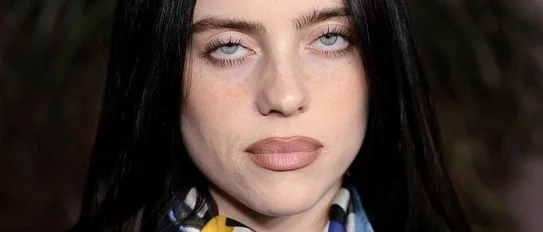
to Hive being
welcome
What is Hive Being, and Why the Name?
You have likely heard talk of a hive mind, where one global mind finds more or less figurative expression in various local minds. Such talk is common enough in nature documentaries, especially ones concerning ants or bees, and in sci-fi programs. Take that notion, at least a loose version of it, and broaden its scope. That will be a decent first step in understanding the title I have chosen both for my Blog and for the first five-volume installment of my magnum opus Made For You and Me, a fragmentary collection of minimalist stanzas from 2016 to 2020.
In alignment with Spinoza (the 17th Century Rationalist to whom I devoted my doctoral studies), I view reality in its totality as a grand hive Being: all entities are but pulsating manifestations of the buckstopping fount of everything, an ultimate being we might call “God” or “Nature” (so long as, out of respect for the capital “G” and the capital “N,” we limit it neither to some anthropomorphic cloud father hurling lightning bolts nor to mere wilderness untouched by human smog). According to the hive-Being view (where reality is one lone superorganism, a monistic—and we might even say unividualist—conception I defend in both my creative and academic capacities), each non-foundational being (each being, that is, whose essence does not involve existence) is an utterly necessitated expression or eruption or exudation of this eternal source—each is, perhaps better put, a mode or manner of being, and so a focal point through which is disclosed, what classical theists sometimes call “being itself” (ipsum esse subsistens): the realness of the real, the being of whatever may be, the sheer activity of being, the very isness of whatever is. This Blog, which duplicates my Substack, throbs as but one among many literary unfurlings of this self-necessitated foundation, this supreme wellspring, of which we—like black holes and broken beliefs, like fractal ferns and flickering flames—are the inevitable stylings.
My Journey
I am an academic who found himself pressured into early retirement by the rising tides of cancel culture. The illiberal scourge of censoring, silencing, and shaming—although always with us throughout our evolution—reached a local peak around 2021. That was the turbulent year my creative pursuits, which the old left once encouraged as a healthy outlet for the stresses of a childhood steeped in poverty and illiteracy, drew the ire of the new safe-space left. A small cadre of self-proclaimed victims and their allies, several of whom continue to berate me years later under pseudonyms as see through as their sexual infatuation, sought to erase me and my heterodoxy. They found support from a wannabe-woke dean, covered in the grand inquisitor robes of our decadent modernity (full-body tattoos) and just itching to signal his commitment to protecting “vulnerable populations” from triggering material (even if just, as it was in my case, off-duty poems “unbecoming for someone calling himself a teacher”). Although I eventually won my due-process case with the help of The Foundation for Individual Rights and Expression, I slunk away from a college that turned its back on protecting freedom of expression and from an institution increasingly intolerant of intellectual diversity.
The wrecking ball to my too-comfy office in the windowless ivory tower came with a silver lining. From the ashes of my professional aspirations rose a phoenix of increased freedom to fulfill the literary calling I have pursued for decades. Reputation concerns never stopped me, even within academia’s sterile halls of conformity. Indeed, my unapologetic defiance, which has long baffled friends and family, no doubt chummed even safe waters—almost as if I were asking for it all along—until the cancel shiver grew too frenzied to hold back its blind thrashings. But now, now I piston the most forbidden territories of human thought with no longer even a twinge of conscience. The newfound freedom means extra time to hone my craft. When not assisting special-needs communities (a day job far more rewarding than freeway-flyer drudgeries), I pursue my literary mission with Dionysian fervor.
Call for Co-Conspirators
This space, my digital sanctuary, showcases the fruits of my mission. Think of my posts, even those linking to my publications, as works in progress. I want your input, unflinching brutality included. Each post begins with an invitation to action: “Let’s workshop this [draft about x, y, z].” Your contributions, whether through public comments or my contact page, help hammer scraps of ore into polished blades fit for magazine publication.
Your input is valuable, even if you are neither a writer nor a reader of literature—twin disciplines dying by the cyber nanosecond. Sometimes—even if at the risk of uttering banalities—an outsider’s fresh vantage can pierce the veils of convention to reveal what insiders miss. It often takes an outsider to make us even think to question our ingrained presuppositions and attitudes. I stand by the hygienic value of contagion. That is one reason I advocate so strongly for intellectual diversity and freedom of expression. And that is also one reason I was so harrowed by the anti-diversity swell of cancel culture in academia (an institution that should be the utmost caretaker of such values)—harrowed especially insofar as that swell masqueraded under the gaslighting guise of “diversity”).
You will witness the breathing evolution of my writings over time. To track these changes, I label each revision by round: “ROUND 2,” ROUND 3,” and so forth. Each piece undergoes continuous refinement based on your feedback and my own revisitations. Sometimes changes will mar the work. That is the risk of creative tinkering as a finite creature. I hope you will alert me to missteps. After many semesters of university writing workshops, one rule has impressed itself upon me: when someone senses a flaw, something almost always needs to change—even if, yes, the proposed solution misses the mark (which often it does). From a quick look into the archives, accessible here, you can see how much I have benefited from your feedback so far.
My Hope
Sharing drafts can be daunting. But showing you the ravaged and unperfumed real deal unfiltered by makeup (stuttering starts and falsities, awkward line breaks and clumsy word choices, grammatical errors and misspellings)—that not only makes my work more relatable, but helps me refine things through your input. I hope the unfiltered look at the raw process of fumbling, rather than just the polished product, also helps other writers develop their craft. Imperfect works often instruct more than perfect ones: whereas the perfect ones tend to have a grace by which they slip inside us without activating our scrutiny, the imperfect ones—especially the near perfect ones—show us glaringly what not to do.
People laugh at me, seeing—in my tilting at the windmills of literary excellence—a Don Quixote clunking around in Arthurian armor in a post-knight era. I am not naïve. I am well aware of the diminishing ability to read, let alone well: slowly and deeply, with gratitude. I am also aware that my style, which often nests subpoints within larger points, never waters down virtuosity for the sake of mass appeal. I watch readers stumble over my sentences, unable to unlock even just the music of the envelope let alone the semantic meat within, which—given my tendency to flashlight through the darker facets of human nature (the addicts, the miscreants, the abusers among us)—only adds an additional alienating layer of difficulty). Beholding these depressive scenes of even supportive family members getting bucked off my syntactic bronco makes me feel like a dinosaur who should get a hint and, if not succumb to the brain rot of skibidi-toilet speak, just hang himself already. Even though the decline in linguistic background and grammatical voltage makes my compositions seem quixotic in a world binging Netflix and TikTok, I persist—raging against the dying of the light—by some internal compulsion to celebrate the richness of language and thought.
My hope is that, despite social media’s unparalleled power to farm our attention, people never forget the unique power of writing. Beyond unveiling hypocrisy, teasing out complex implications, and detailing the commonalities between even the most alien phenomena, writing offers something we need today—trapped in agoraphobic cyber bubbles only thickened by the Lyme dangers of forests and the COVID dangers of cities—perhaps more than ever. Granting us rich access to the first-person perspectives of others (to how things feel to them), writing serves as one of humanity’s best tools for combating loneliness. It allows us to linger, broadly and deeply and at high resolution, within the inner lives of others in a way that other arts can only suggest.
What to Expect
My work spans a broad spectrum: from metaphysical discourses on free will and determinism and the ontology of holes to the ephemera of western culture (whether the childhood impacts of the hypersexual mono-image of black woman as squirting twerkers or Terrence Howard’s sham revolution of mathematics). Some tight and minimal, others free-flowing sprawls; some heady and abstract, others emotional and imagistic—my inkwell musings, which often blend scholarly rigor with a dark humor from both high and low culture, aim to capture the visceral intensity of our personal and social and ultimately existential predicaments.
By no means can I deny that drug abuse, sexual assault, and the tales of the broken and the damned loom large in the tag cloud of my work. My writing will never be a paradise of easy truths and comforting lies. It will challenge you, provoke you, and at times even repulse you. I offer no apologies for the monsters I unleash. They are as much a part of us, at long root scared rodent mammals scurrying in the shadows of dinosaurs, as our noblest aspirations.
But make no mistake. It is not all downer darkness. The archives are my receipts. You will find pieces exploring the pursuit of authenticity in a media-saturated world, the search for meaning in an indifferent cosmos, and the celebration of beauty in both the sublime and the profane. I locate much of my inspiration, in fact, in novelists like Dostoevsky and poets like Ted Kooser—writers unafraid to pursue moral agendas or risk Hallmark sentimentality in an age that often sneers at sincerity.
Be they satirical dissections of modern social dynamics or poignant poems about addiction or academic articles on moral responsibility, my goal is to provoke thought, evoke emotion, and foster meaningful dialogue. Fear has not and will not stop me from challenging humanity’s fundamental taboos (like bestiality and cannibalism) or self-reflecting into the dark chaos of the subconscious, even if that means exposing the Jungian shadows—the inner Goebbels—lurking within us all!
Expect posts each day, no day missed. Donations are welcome, but I impose no paywall: it feels wrong to charge for art, especially given our date with obliteration. Feel free to explore what amounts to, at the time of writing this, close to a thousand pieces of poetry and prose here. That should give you a sense of what awaits.
Join me—specula holstered—on this literary odyssey into the public and private nooks of the hive Being. Let us navigate the labyrinth of creation together, confronting our demons and even slaying our darlings if we must. Let us dance on the razor’s edge between the sublime and the profane in pursuit of an elusive literary perfection never to be confused—as it has been confused in our declining civilization—with the pursuit of popularity or likeability over truth.
tag cloud
- literature community
- American literature
- poetry
- literature
- poem
- literary
- creative writing
- writing
- poetry community
- Michael Istvan
- Istvan
- perception
- defiance
- suffering
- existential poetry
- dissociative
- existential
- healing
- human
- mortality
- power
- art
- artist
- God
- evolution
- love
- death
- darwin
- anxiety
- rape
- psychoanalysis
- meditation
- addiction
- homeless
- poverty
- poet
- addict
- rapist
- trauma
- therapy
- crack
- hypersexual
- traumatic
- hyperarousal
- grooming
- anal
- anal sex
- choking
- sex
- traitor
- honey pot
- treachery
- true crime
- identity
- dead
- heart
- cunnilingus
- power dynamic
- disease
- safe space
- adolescence
- incendiary
- Vaginal
- identity politics
- fap
- woke
- poetry editor
- Identitarianism
- tyrant
- Vagina
- Nietzsche
- campus warrior
- censor
- OwnVoices
- censors
- Pussy
- substance abuse
- Earth
- sensual
- resilience
- animals
- hardship
- empathy
- ally
- crime
- scarf
- indians
- summer
- turtles
- turtle
- dogs
- Life affirming
- sexuality
- body disposal
- psychology
- fisting
- kidnapping
- kidnap
- surrealism
- burka
Posts

Teenie Toffees
In just a few lines, "Teenie Toffees" delivers a searing critique of the early sexualization of girls, the commodification of female bodies, and the uneasy overlap between capitalist enterprise and patriarchal desire. Through the figure of a Girl Scout—typically a symbol of innocence and community service—the poem constructs a biting satire of how precocious female agency is often shaped, and ultimately distorted, by a culture that rewards self-objectification. The girl in the poem is no passive victim. She is described as possessing a mind “made for hustle,” a phrase that foregrounds ambition and precocity. The use of a “middle school hand mirror” evokes both literal reflection and metaphorical self-awareness, suggesting that her vision of power and success has been formed through the tools of adolescence and vanity. But what she sees is not herself in any holistic sense. What she sees, with a precocious clarity, is a single, culturally fetishized aspect of her body—her genitalia—as the locus of her value, her leverage, her supreme product.
The satire becomes cutting as the poem likens her sexualized awareness to the sacred: “one that scaled harder / than any scripture, more // generative than loaves or fish / in the very hands of Jesus.” This theological hyperbole is both absurd and horrifying, underscoring the moral dissonance at the heart of the cultural moment the poem confronts. To compare a girl’s sexual marketability to Christ’s miracles is to expose the perverse deification of erotic capital in a society that pretends to protect its children while simultaneously grooming them to trade on their desirability. The religious imagery does not merely critique religion per se, but the way society has substituted sexuality for sanctity—replacing the miraculous with the transactional, the holy with the marketable. Her thighs are transformed into both altar and marketplace, the site of consumer fantasy and messianic potency. The poem’s power lies in its refusal to flinch from this logic. Rather than hedging or couching the critique in euphemism, it confronts the reader with the full absurdity and tragedy of how young girls are taught to recognize their bodies as products before they are even fully formed persons.
In this way, "Teenie Toffees" can be read as an allegory of lost girlhood under neoliberalism. The “supreme cookie” is not just a pun on Girl Scout cookies or a slang term for the vagina, but also a symbol for the girl’s own understanding of value under capitalism. The more she internalizes the market’s logic, the more her personhood is reduced to what she can sell. The tone is not accusatory toward the girl herself; she is depicted as savvy and aware, even if tragically so. The indictment is aimed instead at the culture that has made such savvy necessary for survival and success. If she is a hustler, she is a hustler made by forces far older and stronger than herself.
The brevity of the poem mirrors the brevity of girlhood itself in a hypersexualized culture. The progression from mirror to scripture to Jesus to the object between her thighs unfolds with disquieting speed, enacting the very collapse of boundaries the poem critiques. The final line leaves the reader with no comfort—only a bitter recognition of how early this process begins and how effectively it masquerades as empowerment. In doing so, the poem not only critiques the commodification of femininity but also questions the frameworks through which we interpret agency, consent, and ambition in young girls. By fusing religious iconography with economic metaphor and sexual innuendo, "Teenie Toffees" reveals the unholy trinity at the core of contemporary girlhood: capitalism, patriarchy, and the performance of empowerment.
Meta Description:
"Teenie Toffees" is a sharp, unsettling poem that explores how early capitalist and patriarchal conditioning teaches girls to commodify their own sexuality. Through the figure of a precocious Girl Scout, the poem critiques the collapse of innocence and the rise of erotic self-awareness as a currency under late capitalism, using religious imagery to underscore the perverse sanctity of erotic capital.
Keywords:
sexualization, girlhood, satire, capitalism, patriarchy, commodification, consent, precocity, neoliberal feminism, market logic, erotic capital, religious metaphor, body politics, female agency, youth exploitation, postmodern critique.
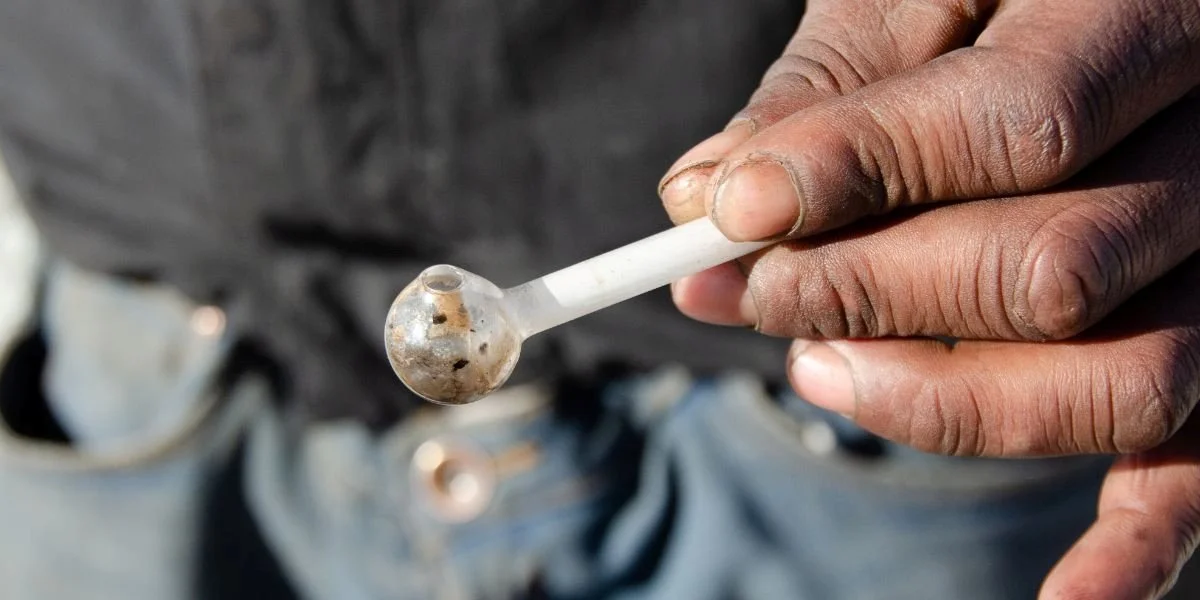
The Last Vestiges (ROUND 4)
“The Last Vestiges” is a tightly compressed scene of intergenerational trauma and economic precarity, conveyed through a cinematic, present-tense realism and an undertow of psychic decay. The poem operates like a flashbulb: a single moment in a squalid domestic cycle is illuminated so starkly that it gestures to an entire tragic system beneath the surface. It is a poem about addiction, the death of hope, and the premature maturation of children raised in the gravitational pull of collapse.
The narrative unfolds in two distinct movements. In the first, we observe the meth-addicted mother—disheveled, performatively cheerful, and desperate—returning to her childhood home with the empty symbol of parental care: a crusted Happy Meal box. The detail of the “fries stiff, having clocked / their share of miles” suggests not just physical distance, but the time lag between performative parenting and real nurturing. The fast food meal becomes a totem of her failure—its intended warmth long expired. Her “centrifugal hug” to the toddler reads less as affection and more as a self-spinning grasp for connection and legitimacy.
The poem’s sonic and visual language is saturated with decay and dissonance: curbside Febreze attempting to mask a smell that cannot be banished, mascara applied to cover emotional fatigue, not for beauty. In a subtle tonal maneuver, the poem turns that stench and that “ebullience” into parallel metaphors—both exaggerated, both signs of impending collapse. It signals that the performance of maternal care and the performance of survival are eroding in tandem.
The second half of the poem shifts perspectives, centering the toddler. The child, tracing the contours of a Happy Meal toy, is not playing but meditating—on absence, on entropy, on the flickers of temporary brightness. “Fast the day approaches” suggests a coming threshold: the child’s early awakening to the failure of emotional continuity. The climax arrives in the realization that this boy must “become immune to hope,” not as a philosophical stance, but as an involuntary adaptation to his environment. The line “at a level of consciousness before his time” is devastating—it signals the forced forfeiture of childhood itself.
The poem’s title, “The Last Vestiges,” points to a spiritual archaeology: what remains when the institutions of family, care, and economic stability have crumbled. The only inheritance passed down in this home is ruin—ritualized, barely masked, and intimately known.
Meta Description
A stark and affecting portrait of familial addiction and early emotional hardening, “The Last Vestiges” captures the moment a child begins to shed innocence in a home marked by decay and desperation. Through compressed language and sensory contradiction, the poem dramatizes the collapse of maternal performance and the intergenerational consequences of survivalism.
Keywords
poverty, addiction, methamphetamine, intergenerational trauma, childhood emotional development, performative motherhood, Happy Meal symbol, failed care, domestic decay, economic despair, hope and disillusionment, poetic minimalism, poetic realism, survival and numbness, social realism in poetry
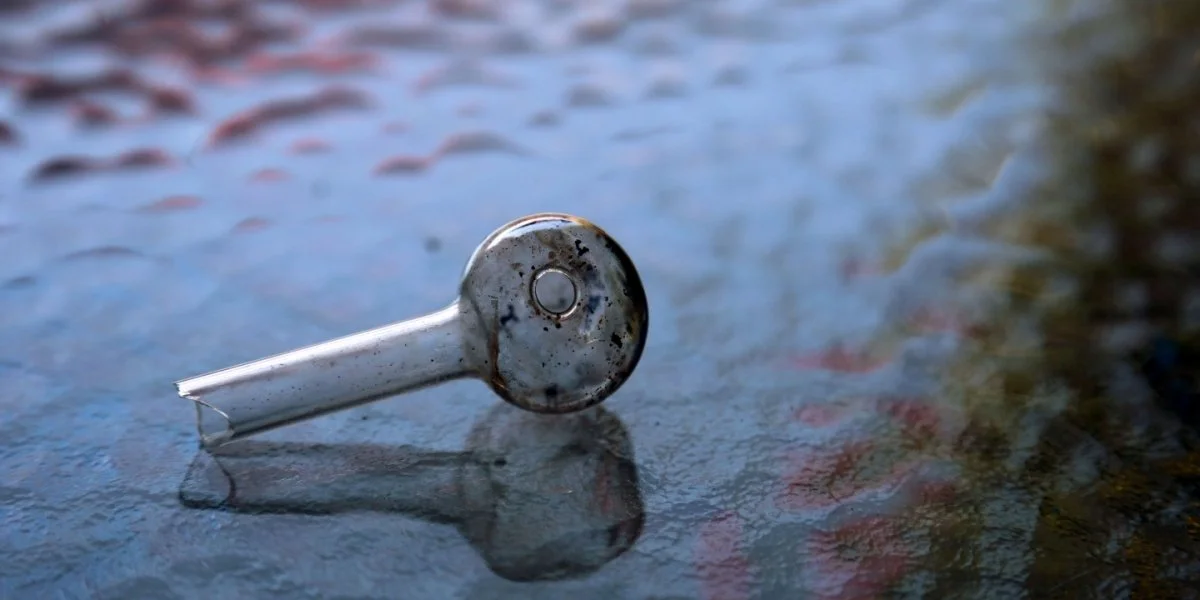
The Last Vestiges (ROUND 3)
“The Last Vestiges” is a tightly compressed scene of intergenerational trauma and economic precarity, conveyed through a cinematic, present-tense realism and an undertow of psychic decay. The poem operates like a flashbulb: a single moment in a squalid domestic cycle is illuminated so starkly that it gestures to an entire tragic system beneath the surface. It is a poem about addiction, the death of hope, and the premature maturation of children raised in the gravitational pull of collapse.
The narrative unfolds in two distinct movements. In the first, we observe the meth-addicted mother—disheveled, performatively cheerful, and desperate—returning to her childhood home with the empty symbol of parental care: a crusted Happy Meal box. The detail of the “fries stiff, having clocked / their share of miles” suggests not just physical distance, but the time lag between performative parenting and real nurturing. The fast food meal becomes a totem of her failure—its intended warmth long expired. Her “centrifugal hug” to the toddler reads less as affection and more as a self-spinning grasp for connection and legitimacy.
The poem’s sonic and visual language is saturated with decay and dissonance: curbside Febreze attempting to mask a smell that cannot be banished, mascara applied to cover emotional fatigue, not for beauty. In a subtle tonal maneuver, the poem turns that stench and that “ebullience” into parallel metaphors—both exaggerated, both signs of impending collapse. It signals that the performance of maternal care and the performance of survival are eroding in tandem.
The second half of the poem shifts perspectives, centering the toddler. The child, tracing the contours of a Happy Meal toy, is not playing but meditating—on absence, on entropy, on the flickers of temporary brightness. “Fast the day approaches” suggests a coming threshold: the child’s early awakening to the failure of emotional continuity. The climax arrives in the realization that this boy must “become immune to hope,” not as a philosophical stance, but as an involuntary adaptation to his environment. The line “at a level of consciousness before his time” is devastating—it signals the forced forfeiture of childhood itself.
The poem’s title, “The Last Vestiges,” points to a spiritual archaeology: what remains when the institutions of family, care, and economic stability have crumbled. The only inheritance passed down in this home is ruin—ritualized, barely masked, and intimately known.
Meta Description
A stark and affecting portrait of familial addiction and early emotional hardening, “The Last Vestiges” captures the moment a child begins to shed innocence in a home marked by decay and desperation. Through compressed language and sensory contradiction, the poem dramatizes the collapse of maternal performance and the intergenerational consequences of survivalism.
Keywords
poverty, addiction, methamphetamine, intergenerational trauma, childhood emotional development, performative motherhood, Happy Meal symbol, failed care, domestic decay, economic despair, hope and disillusionment, poetic minimalism, poetic realism, survival and numbness, social realism in poetry

Name Out Your Fucking Mouth (ROUND 2)
Scholarly Analysis: “Name Out Your Fucking Mouth”
“Name Out Your Fucking Mouth” is a tightly coiled poem of aesthetic defiance, aimed at the hypocrisy of contemporary cultural gatekeepers who commodify dead, tortured artists like van Gogh while simultaneously policing their living equivalents out of polite society. In a short span, it excoriates the performative virtue of social media–fueled moralism and exposes how institutional and informal censorship are often disguised as compassion, concern, or safety.
The speaker identifies a class of "art haters in lover’s drag"—individuals who claim to revere art and artists but engage in soft suppression through mechanisms like digital concern-trolling (“Are you okay?”), false benevolence, or institutional reporting (“He’s unsafe”). The poem’s narrative implicates these actors in the same “Mean Girls” dynamics that van Gogh himself endured in life: social isolation, moral pathologizing, and eventual dismissal, all while claiming to love what he “stood for” posthumously.
The poem’s structure mirrors its thematic content: aggressive enjambment, jarring line breaks, and acidic diction simulate the abrupt ruptures of online callouts and the psychic dislocation of being both venerated and vilified. The title, borrowed from the 2022 Oscars slap controversy, adds layers of cultural resonance. It becomes a gesture of exasperation, an insistence on the right to self-definition and the right not to be reduced to symbolic capital in someone else’s morality play.
The invocation of van Gogh is central. He is not simply a metaphor for artistic suffering, but a diagnostic lens for cultural schizophrenia: his image is plastered across tote bags, Instagram feeds, and classroom walls—yet artists who share his inner turmoil and unorthodox voice are today flagged, silenced, or gently nudged into irrelevance through “care-based” paternalism. The poem calls out this contradiction: to post van Gogh and cancel his successors is to reproduce the exact cruelty you pretend to mourn.
The final impact of the poem is not merely criticism. It functions as a rallying cry for radical artistic honesty—an argument for preserving the space of difficult art, dangerous voices, and aesthetic risk, even (and especially) when it disrupts norms or provokes discomfort. In this context, “unsafe” becomes not a disqualifier, but a badge of necessary artistic resistance.
Meta Description
A scathing poetic critique of contemporary cultural hypocrisy, “Name Out Your Fucking Mouth” exposes how the same social forces that once ostracized van Gogh now glorify him posthumously—while canceling his living artistic heirs. It condemns moralistic gatekeeping disguised as concern and challenges the aesthetic policing of nonconforming voices.
Keywords
contemporary poetry, cancel culture, van Gogh, moral policing, social media criticism, concern-trolling, art and safety discourse, institutional censorship, artistic marginalization, cultural hypocrisy, virtue signaling, poetic resistance, unsafe art, icon appropriation, aesthetic rebellion

Nick at Nite (Round 4)
“Nick at Nite” is a stark, compressed poem that stages childhood exposure to adult violence through the bitter irony of domestic distraction and pop-cultural anesthesia. In just a handful of lines, the poem collapses innocence and trauma into a single domestic tableau, using clipped syntax and jarring juxtapositions to render memory not as narrative but as flash—fragmentary, bodily, and uncontainable.
The title itself operates as a cruel misdirection. Nick at Nite, a television programming block associated with nostalgia, comfort, and family-friendly reruns, becomes an emblem of how entertainment is deployed to pacify children amid household chaos. The opening line—“Fun Dip was to keep us at the TV”—frames the candy as both bribe and barrier, a sugary tether meant to fix the children’s attention elsewhere. The poem immediately undercuts this gesture of care by revealing the mother’s retreat, “staggering to her room,” signaling intoxication, exhaustion, or injury.
The second line intensifies the poem’s moral dissonance. The “oniony man,” a detail that conveys bodily closeness and degradation through smell alone, intrudes verbally with the obscene imperative “Let em see some pussy.” This line is not framed for shock but as ambient violence—spoken casually, slurred, uncontained. Its placement mid-parenthesis mimics the way such remarks exist in the background of traumatic memory: overheard, partially processed, but never forgotten.
The poem’s visual center is the “fist hole” in the wall, hidden behind “macaroni art.” This image is devastating in its symbolic density. The hole is both literal evidence of past violence and a portal of witnessing. The macaroni art—an icon of childhood creativity and school-sanctioned pride—becomes camouflage, a domestic lie masking brutality. When the children “peek hard through” this aperture, the poem makes explicit the impossible position of the child witness: compelled to see, unable to intervene, processing horror through giggles and bodily release (“giggle-peed”), a response that registers not humor but nervous system overload.
The final lines complete the poem’s descent. The mother’s retching, paired with the presence of a gun and shouted taunts (“Try me, bitch!”), fuses threat, humiliation, and danger into a single auditory blur. The poem refuses to narrativize or resolve this moment. There is no aftermath, no reflection—only the raw co-presence of children’s laughter and adult menace. This simultaneity is the poem’s central achievement: it captures how trauma embeds itself not as coherent story but as incompatible sensations held together in memory.
Formally, “Nick at Nite” exemplifies an aesthetics of subtraction. The poem withholds explanation, motive, and emotional commentary, relying instead on precise nouns and verbs to carry ethical weight. The diction is plain, even blunt, but the enjambment and line breaks create pauses that mimic the halting, stunned quality of recollection. The poem’s brevity is not restraint for its own sake; it mirrors the way such memories surface—sudden, incomplete, and intrusive.
In the tradition of confessional and trauma-inflected poetry (one might think of Sharon Olds, Ai, or early Louise Glück), “Nick at Nite” insists that domestic violence is not a private aberration but a formative environment, shaping perception long before language or moral frameworks are available to interpret it. The poem’s refusal to aestheticize or soften its content is itself an ethical stance: it does not ask for sympathy, nor does it provide catharsis. It simply records what was seen.
Meta Description:
“Nick at Nite” is a stark lyric capturing childhood exposure to domestic violence through fragments of memory, pop culture, and household objects. The poem juxtaposes candy, television, and school art with menace and threat, rendering trauma as simultaneous innocence and horror.
Keywords:
domestic violence, childhood trauma, memory fragments, minimalist lyric, witness, family dysfunction, pop culture irony, violence and innocence, confessional poetry, visual symbolism, repression, traumatic recall.

Reentry (ROUND 2)
“Reentry” is a tightly compressed lyric that explores the paradox of spiritual return and material loss, staging the tragicomic failure of a modern seeker’s attempt to undo possession through ritual renunciation. In just thirteen lines, the poem dramatizes the collision between countercultural longing and capitalist reality, between reverence for indigenous sacredness and the compulsions of ownership. It offers a subtle yet poignant critique of contemporary modes of spiritual self-fashioning—especially those filtered through psychedelia, New Age romanticism, and archaeological fetishism.
The speaker recounts an unnamed man—implicitly white and urban—who “reburied / that petrified jug (worth, / he knew, his SoHo loft)” in a desert cave. The act of reburial, described as performed in “oneness with the native / maker,” signals a ceremonial gesture, an attempt at symbolic restitution or communion with a past he reveres. The jug, simultaneously a cultural artifact and high-value commodity, becomes a focal object of competing temporalities: it belongs both to ancient ritual use and to modern urban capital, to sacred ancestry and auction-house scarcity.
The language is precise and loaded. “Dirty nails cradling it / at heart” renders the gesture not only intimate but also visceral, even fetal. The position of the jug is telling—held “at heart”—suggesting reverence, love, guilt. Yet this care is not redemptive: it is undermined by the implicit self-awareness of its performativity. The man’s “oneness” with the “native maker” is ironically framed by quotation marks, exposing the constructedness (and perhaps the delusion) of this spiritual identification. The juxtaposition of spiritual posture and financial valuation—“(worth, / he knew, his SoHo loft)”—lays bare the psychospiritual contradictions of contemporary “decolonial” practices that remain tethered to elite capital and individualist affect.
The final tercet delivers the poem’s central irony and psychic rupture. The man—having buried the jug to symbolically refuse ownership—cannot retrieve it. His search, carried out during a dawn “psilocybin descent,” fails. The implications are multiple: literal disorientation, yes, but also deeper metaphorical misrecognition. The poem’s title, “Reentry,” now resounds with ironic force: the speaker is locked out not only of the cave but of the very experience he hoped to possess through relinquishment. The effort to “reenter” a mythic time collapses into comedown. The sacred act becomes unrecoverable, lost in the fog of altered consciousness and the limits of his own cultural comprehension.
The poem’s strength lies in its restraint. There is no overt editorializing, no didactic intrusion. The critique is embedded structurally—via juxtaposition, enjambment, and tone. The final image—“unable to find it, / for the bloody life of him”—folds together futility, comic self-pity, and spiritual failure. The line break after “unable to find it” forces a pause of suspense, while “for the bloody life of him” fuses British idiom with corporeal desperation, underscoring the man’s loss of both artifact and identity.
If the poem channels any specific poetic tradition, it is that of late modernist minimalism and postcolonial irony. Echoes of W.S. Merwin’s spareness and Gary Snyder’s ecological mysticism emerge—but with a critical edge Snyder might resist. The use of psychedelics, once a liberatory symbol in American poetic imagination, becomes here a complicating agent of epistemological confusion. Rather than expand the speaker’s field of consciousness, the psilocybin descent literalizes a fall into forgetfulness—a metaphysical pratfall.
Ultimately, “Reentry” is about the impossibility of return—return to origins, to purity, to innocence of possession. It stages the tragicomedy of postmodern spiritual longing in a landscape defined by commodity fetishism and dislocated reverence. What emerges is a sharply intelligent parable about the limits of symbolic acts in the face of historical and material entanglement.
Meta Description:
“Reentry” is a compressed lyric exploring a spiritual seeker’s attempt to renounce possession by reburying a sacred artifact—only to lose it during a psychedelic trip. The poem critiques the contradictions of spiritual longing, materialism, and postcolonial mimicry in a commodified world.
Keywords:
poetic minimalism, spiritual parody, psychedelics, cultural appropriation, postcolonial irony, sacred object, SoHo loft, reburial, psilocybin, ritual failure, anti-ownership, modern mysticism, poetic irony, spiritual materialism, psychedelic descent, symbolic renunciation

Logical Palsy or Will to Power? (Round 3)
"Logical Palsy or Will to Power?" is a highly polemical poem that critiques what it perceives as a selective and self-serving application of anti-border ideology. The poem frames a contemporary debate around immigration and land claims, arguing that a particular ideological stance, seemingly rooted in universal principles, ultimately reveals itself as a naked exercise in power.
Formally, the poem adopts a confrontational and interrogative structure. It begins with the direct address of "bullhorns" bleating slogans like "“Borders,”... “are bogus and immoral / to police,” hence “no Mexican, / no migrant, is illegal”—". This sets up the initial premise, presenting a common rhetorical position regarding open borders and the illegality of human movement. The use of quotes and "bullhorns" suggests a public, activist discourse. The poem then introduces a "gotcha" question, designed to expose perceived hypocrisy: "So how can you say / whites stole this land?" This question directly challenges the consistency of the initial anti-border stance when applied to historical territorial claims. The climax of the poem comes with the "reply" that "spreadeagles (speculum / cranked) their power ploy: / “The borders are white.”" This response is depicted as both revealing and aggressive. The imagery of "spreadeagles" and "speculum cranked" is visceral and violent, suggesting a forced exposure or a brutal unveiling of an underlying motive.
Thematically, the poem fundamentally questions the coherence and motivations behind certain contemporary political arguments. The title, "Logical Palsy or Will to Power?", encapsulates the core tension: is the inconsistency simply a "logical palsy" (a cognitive or intellectual failure), or is it a deliberate "will to power" (a strategic manipulation of arguments to gain dominance)? The poem argues for the latter, portraying the "The borders are white" retort not as a logical extension of the initial anti-border stance, but as a calculated "power ploy." It suggests that the same borders deemed "bogus and immoral" when limiting migration are suddenly acknowledged and weaponized when they serve a narrative of historical grievance and racialized land claims. This highlights a perceived selective application of principles, where the very concept of "borders" shifts its moral valence depending on who is being accused or who stands to benefit. The poem critiques what it sees as a strategic inconsistency, where the rhetoric of liberation from borders is deployed to achieve specific ends related to historical redress, revealing an underlying agenda of power acquisition rather than consistent ideological adherence.
identity politics, borders, immigration, land claims, political critique, rhetoric, hypocrisy, power dynamics, logical inconsistency, social commentary, polemic, contemporary issues, race, historical grievance, activism.

Edging La Grande Mort (Round 2)
"Edging La Grande Mort" is a visceral, unsettling poem that plunges into the dark, dangerous intersection of sexual obsession, substance abuse, and the very real threat of death. It functions as a body horror lyric, using explicit physiological details and psychological insight to depict a moment of intense, self-destructive indulgence. The poem's power lies in its unflinching portrayal of a highly taboo subject and the terrifying consequences of pushing one's body to its limits for a perverse pleasure.
Formally, the poem is remarkably compressed, achieving its intense effect through a dense concentration of highly charged vocabulary and a rapid, almost breathless rhythm created by enjambment. The title itself, "Edging La Grande Mort," immediately sets a grim, ironic tone, playing on the sexual practice of "edging" (prolonging arousal) and linking it directly to "La Grande Mort" (the "Big Death," a euphemism for orgasm, here twisted into actual death). The opening lines, "Blood arousal sucked / skullward, away from half-mast cock, / over the chafed hour-plus / on the toilet—" instantly establish the grim, solitary, and physically uncomfortable setting of this indulgence. The shift of blood "skullward" indicates a shift from physical sexual gratification to a more cerebral, dangerous high. The crucial turning point arrives with "the terror / spike of realizing your hot cocaine fap / has had you conflating / mounting tachycardia / for mounting payload only propels / the sprint toward infarction." This is where the grim reality shatters the delusion. The "hot cocaine fap" explicitly names the drivers of this dangerous act, while "conflating / mounting tachycardia / for mounting payload" reveals the fatal error in perception: the physiological signs of a heart attack are misinterpreted as signs of intensified sexual pleasure. The final phrase, "the sprint toward infarction," delivers the chilling, undeniable consequence, leaving the reader with a stark image of self-annihilation.
Thematically, the poem explores the dangerous feedback loop between addiction, warped perception, and self-destruction. The protagonist is so consumed by his "hot cocaine fap" that his body's warning signs of distress (tachycardia) are not only ignored but actively reinterpreted as a desirable intensification of pleasure. This highlights a profound cognitive dissonance and a terrifying disconnect from self-preservation. The poem delves into the psychology of extreme indulgence, where the pursuit of sensation overrides all rational thought and biological warnings. The "chafed hour-plus / on the toilet" underscores the degraded and isolated nature of the act. Ultimately, "Edging La Grande Mort" serves as a stark and unsparing warning against the perils of unchecked desire and the fatal consequences of misinterpreting the body's signals in the pursuit of extreme sensation, portraying a voluntary, terrifying rush towards an ignominious end.
sexual obsession, cocaine abuse, addiction, self-destruction, body horror, erotic horror, heart attack, tachycardia, physiological distress, warped perception, cognitive dissonance, taboo, self-annihilation, dark desire, warning, contemporary poetry.
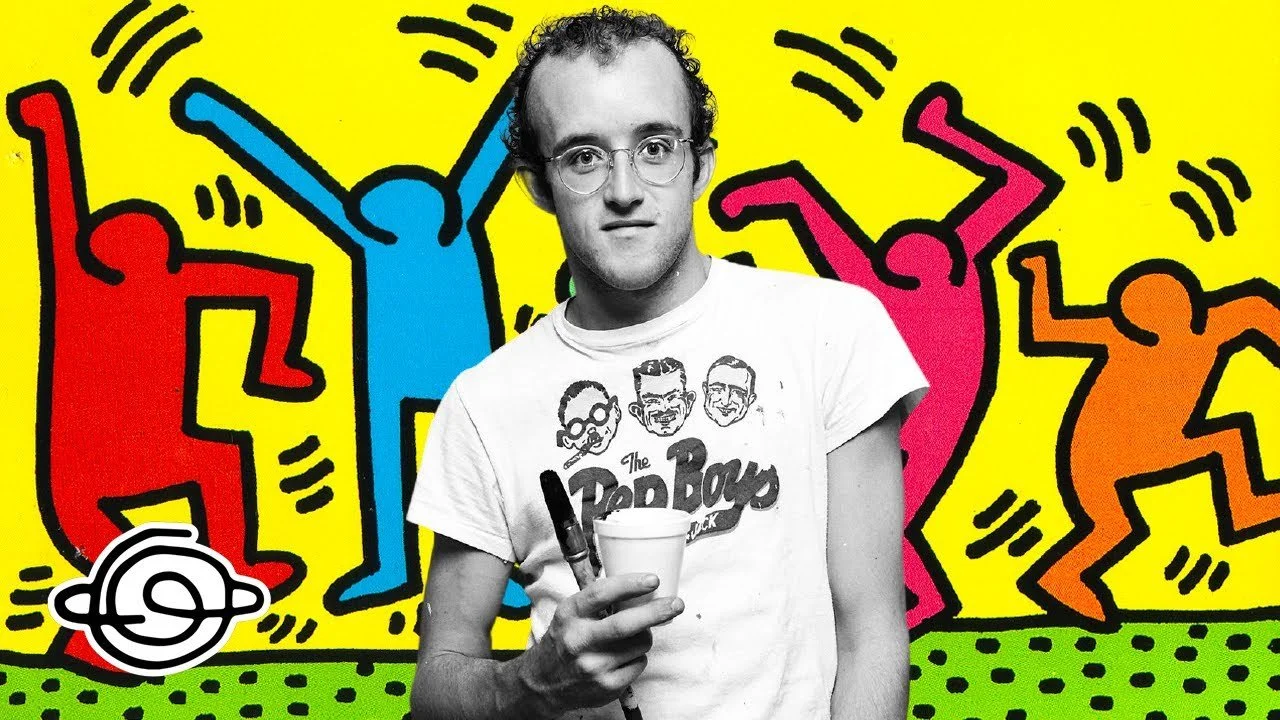
Seroconversion Cruising Grounds (ROUIND 2)
"Seroconversion Cruising Grounds" is a profoundly unsettling and viscerally graphic poem that delves into themes of illicit sexual encounter, disease, and the grotesque intersection of pleasure and peril. It operates as a stark, uncompromising piece within the body horror lyric tradition, using explicit physiological imagery to evoke a sense of revulsion and discomfort. The poem's power lies in its unblinking portrayal of a taboo subject, forcing the reader to confront the abject and the biological realities of risk and consequence.
Formally, the poem is tightly condensed, employing a spare and precise vocabulary to create its disturbing imagery. The use of enjambment ("fecal sludge / pools," "waveform / contour fluctuating") contributes to a sense of fluid, almost inexorable movement, mimicking the "pullback" described in the second stanza. The central image of "fecal sludge / pools at the hilt / of the continence-wrecker" is a particularly potent and confrontational metaphor, immediately establishing the poem's transgressive nature and its focus on the violation of bodily integrity. The "waveform / contour fluctuating / with every pullback" is a chillingly clinical description of a repulsive act, lending a disturbing scientific detachment to the scene. The comparison to "a time-lapsed beach’s scuzzy scum line" further emphasizes the accumulation of filth and decay, linking the personal act to a broader, almost ecological sense of degradation.
Thematically, the poem is a meditation on the grotesque and the abject, specifically in the context of sexual encounters fraught with danger. The titular "Seroconversion Cruising Grounds" immediately establishes a backdrop of risk and potential infection (seroconversion referring to the development of antibodies in response to an infection). The explicit imagery serves to underscore the literal and metaphorical "contamination" at play. The climax of the poem arrives with the shocking "inversion, demonic / as toes-ever-inward ballet, / of the life corona of cervical mucus." This final comparison is a masterstroke of horrifying juxtaposition. Cervical mucus, in its "life corona," signifies fertility, creation, and the potential for new life. Its "demonic" inversion with "fecal sludge" not only signifies sterility and decay but also suggests a perversion of natural processes, a deliberate embrace of the destructive over the generative. The "toes-ever-inward ballet" adds a layer of unnatural contortion, reinforcing the sense of something profoundly wrong and deliberately twisted. The poem ultimately functions as a chilling exploration of desire pushed to its most perilous limits, where the pursuit of sensation intersects with the specter of disease and the violation of the sacred.
Meta Description:
A viscerally graphic poem dissects illicit sexual encounter, disease, and the grotesque, portraying the "death corona of fecal sludge" as a "demonic inversion" of life-affirming processes, exploring the chilling intersection of pleasure and peril.
Keywords:
sexual transgression, body horror, disease, seroconversion, grotesque, abject, bodily fluids, anal sex, sexual risk, perversion, contamination, visceral imagery, taboo, erotic horror, biological decay, inversion, fertility vs. sterility, transgressive poetry, human sexuality, moral decay.
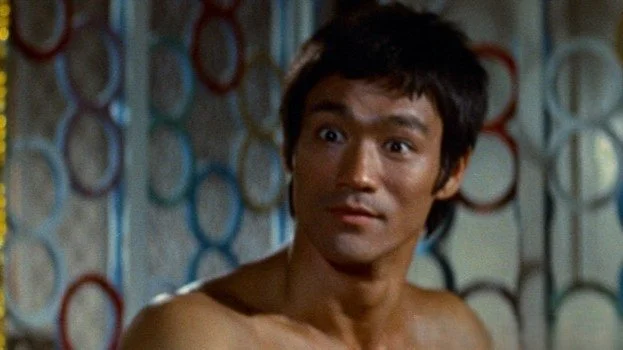
Pushups on Water (Round 2)
"Pushups on Water" is a satirical poem that critiques the exaggerated and often mythical reverence surrounding popular figures, particularly martial arts legends, in contemporary culture. The poem functions as a commentary on the amplification of prowess into absurdity and the potential for hagiography to distort reality over time.
The title, "Pushups on Water," immediately sets a tone of hyperbole and impossibility. It conjures an image of a feat that defies physical laws, signaling the poem's engagement with exaggerated abilities.
The poem proceeds by listing several increasingly outlandish claims attributed to martial arts icon Bruce Lee: "Bruce Lee could do / a layaway one-inch poke / where you die / a hundred steps later / or midair dash too fast / for film." These claims, though rooted in actual martial arts lore (like the one-inch punch), are presented in an exaggerated, almost folkloric manner. The phrase "layaway one-inch poke" adds a touch of absurd domesticity to the deadly force, while "midair dash too fast / for film" pushes the ability beyond verifiable reality, into the realm of pure myth. The parenthetical "or, still absurd, / even just tap out / Royce Gracie" introduces a contemporary martial arts figure, implicitly mocking the tendency to project Lee's abilities onto hypothetical modern-day victories, even against a legend of a different era and discipline. The poem establishes that "so many today swear" these impossible feats are true, highlighting a collective credulity.
The poem's central question, "what / immaculate conceptions / might we halo him with / after centuries?", delivers its core satirical punch. The phrase "immaculate conceptions" is a religious term, here used sacrilegiously to imply that over time, legendary figures are not just admired but deified, imbued with divine or supernatural qualities born of unquestioning belief. The poem suggests that if such absurd claims are already accepted after a relatively short period, the future holds even greater, more fantastical glorifications. It critiques the human tendency to mythologize, creating a hagiographic distance that replaces verifiable reality with fantastical narratives, driven by admiration that borders on uncritical reverence.
Satire, Bruce Lee, martial arts, legend, myth-making, hagiography, hyperbole, cultural critique, hero worship, exaggeration, popular culture, critical thinking, deification, contemporary poetry.
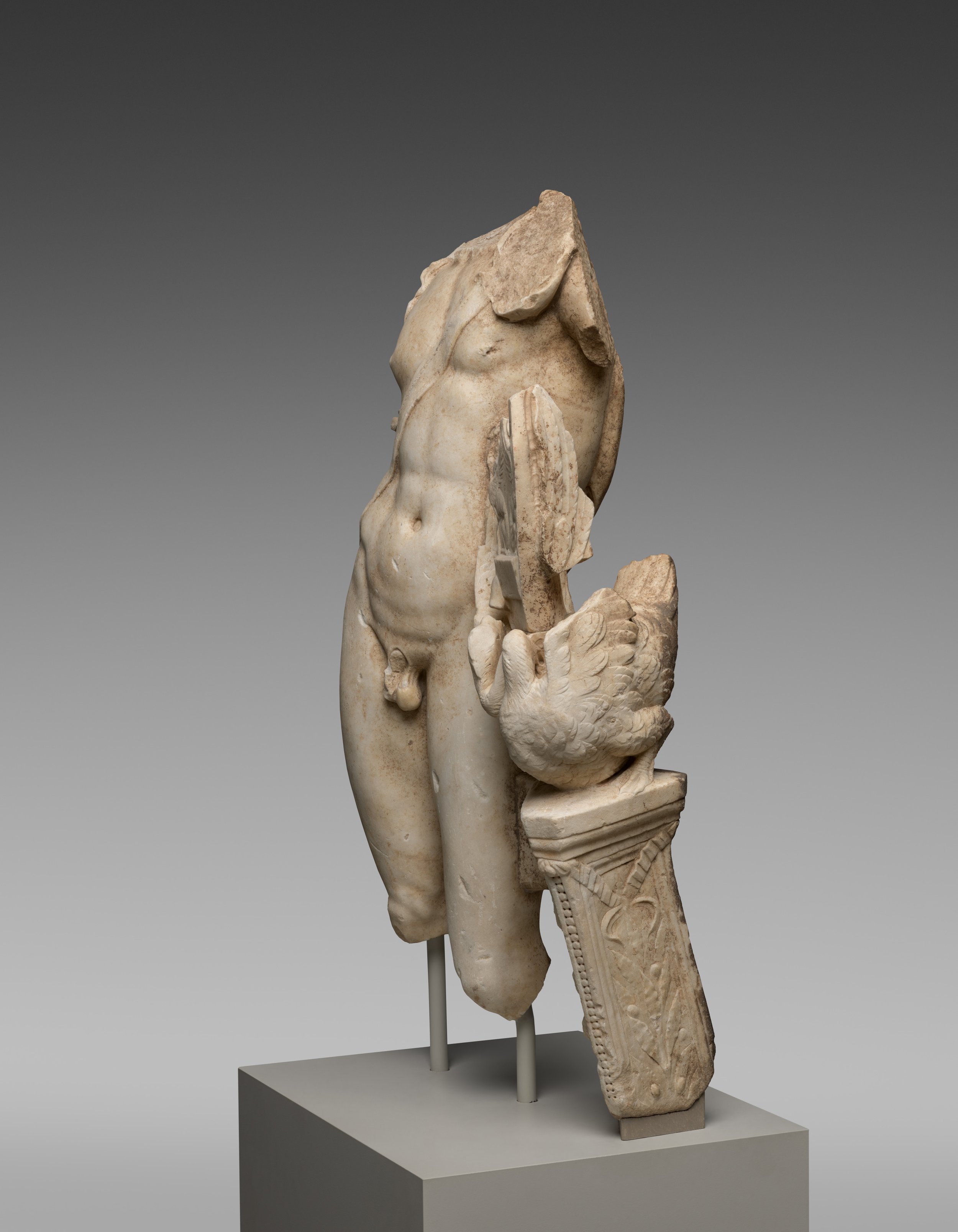
The Art of Subtraction (ROUND 4)
“The Art of Subtraction” is a deeply reflective and formally restrained poem that grapples with generational inheritance, masculinity, self-erasure, and the redemptive potential of surrender. At its core, the poem is an ars poetica not only of fatherhood but of human aging and spiritual maturation. Drawing on Rilke’s Archaic Torso of Apollo (“You must change your life”) while invoking six unnamed “Mikes”—potentially avatars of the everyman—the speaker meditates on the slow, humbling art of stepping aside, of making peace with no longer being central.
The poem opens with a blunt declaration: “I isolate.” This staccato phrase establishes both tone and theme. From the outset, the speaker identifies emotional withdrawal as not merely a habit but a familial legacy: “Like my own father / before me.” In naming this inheritance, the poem locates isolation not as an anomaly but as a masculine inheritance—genetic, perhaps, but more likely cultural and behavioral. The lines “it takes everything in me / to look straight at my son” encapsulate the core crisis: the inability to meet the child’s gaze becomes emblematic of the broader struggle to remain open, vulnerable, and emotionally available.
The poem’s middle section unfolds as a meditation on memory and shame. There is a near-cinematic recall of the son’s “little nose” in the mirror, the “Pee-yew” diapers—quotidian moments rendered luminous and almost unbearable in retrospect. These are not sentimental flourishes, but evidentiary fragments that intrude with psychic force, making the speaker’s current estrangement from his son even harder to bear. The line “foregrounding too much for me / to fathom the man he is becoming” is crucial: it positions fatherhood as a state of emotional overload, where proximity to one’s child does not guarantee comprehension or comfort.
The poem resists resolution. Even as the son matures into a more “considerate” presence, the father’s shame persists. His response to his son’s enthusiasm is not ease but guilt—“I look down, look / at me, like a cuffed criminal ushered / into court for his disgrace.” This simile enacts a reversal: the child is now the figure of moral authority, the judge, while the father stands condemned—not for any crime of abuse or abandonment, but for the more ordinary, more devastating failure of presence. The father cannot be fully there. And this insufficiency is seen.
The allusion to Rilke enters here with pointed irony. Where Rilke’s Apollo commands the viewer to transformation—“You must change your life”—the speaker reads in the same mirrored image not only exhortation but doom: “Your time has come to an end.” The body—“the carved torso of Apollo”—becomes a site of both awe and accusation, beauty and judgment. It is this ambivalence that carries the poem forward: the speaker does not reject the command, but he also does not fantasize a grand self-overhaul. Instead, he moves toward something quieter, harder: “to apprentice oneself into erasure.”
This phrase, perhaps the poem’s most resonant, encapsulates the philosophical core. “Erasure” is not death, but a practice. It is the father’s task to disappear not violently or with resentment, but gracefully and deliberately—to become “he who can bear not being / the center.” In this, the poem affirms that real maturity lies not in assertion but in relinquishment. It is not a poem of self-loathing or tragic loss, but of moral discipline, humility, and love.
The final image—of the speaker’s own father “bowed over beer bottles towering / in a bravado beaten by my own blaze”—completes the generational circle. The speaker has become what his father was: vulnerable, diminished, aware. But he chooses a different form of strength. “I doubt my strength for the other road… / What I do know… is this: / if I cannot muster the strength, / at least I will walk beside him.” The poem ends not in transcendence but in solidarity. If the speaker cannot be perfect, he can be present. If he cannot be central, he can still accompany.
Stylistically, the poem is marked by enjambed free verse, syntactic hesitations, and an austerity that mirrors its subject matter. The diction is plain, at times blunt, but haunted by philosophical precision. There are no rhetorical flourishes, only slow, earned insights. Like the best of late-style poetry (one hears echoes of Donald Hall, Jack Gilbert, and of course Rilke), “The Art of Subtraction” practices its theme formally as well as thematically: it subtracts excess in favor of clarity, revelation, and the hard grace of living with oneself in the shadow of one’s children.
Meta Description:
A restrained and elegiac poem, “The Art of Subtraction” explores the quiet struggle of fatherhood, aging, and spiritual humility. Through inherited shame, Rilkean self-reckoning, and the metaphor of erasure, the poem stages maturity as a surrender of centrality in favor of presence and love.
Keywords:
fatherhood, Rilke, masculinity, aging, erasure, presence, intergenerational trauma, reflection, poetic restraint, selfhood, subtraction, memory, humility, the gaze, ars poetica, shame and redemption, modern lyric
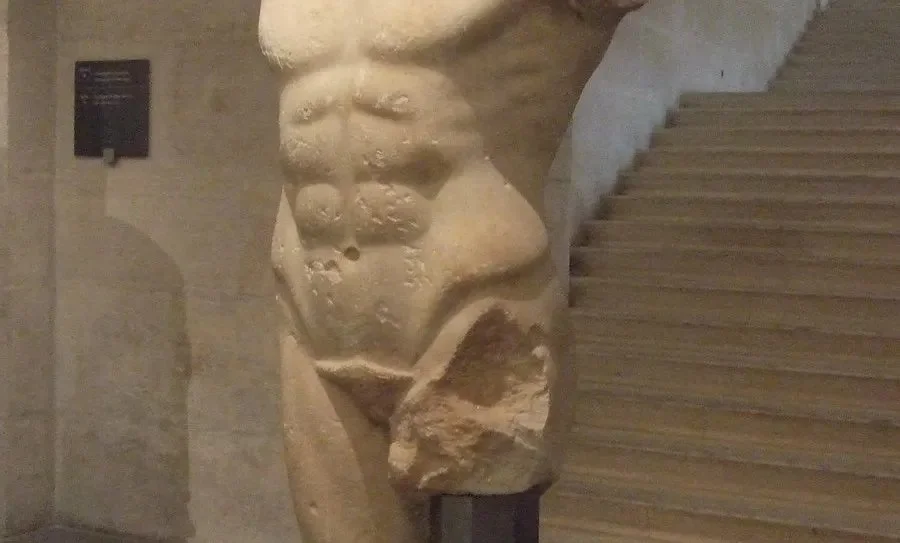
The Art of Subtraction (ROUND 3)
“The Art of Subtraction” is a deeply reflective and formally restrained poem that grapples with generational inheritance, masculinity, self-erasure, and the redemptive potential of surrender. At its core, the poem is an ars poetica not only of fatherhood but of human aging and spiritual maturation. Drawing on Rilke’s Archaic Torso of Apollo (“You must change your life”) while invoking six unnamed “Mikes”—potentially avatars of the everyman—the speaker meditates on the slow, humbling art of stepping aside, of making peace with no longer being central.
The poem opens with a blunt declaration: “I isolate.” This staccato phrase establishes both tone and theme. From the outset, the speaker identifies emotional withdrawal as not merely a habit but a familial legacy: “Like my own father / before me.” In naming this inheritance, the poem locates isolation not as an anomaly but as a masculine inheritance—genetic, perhaps, but more likely cultural and behavioral. The lines “it takes everything in me / to look straight at my son” encapsulate the core crisis: the inability to meet the child’s gaze becomes emblematic of the broader struggle to remain open, vulnerable, and emotionally available.
The poem’s middle section unfolds as a meditation on memory and shame. There is a near-cinematic recall of the son’s “little nose” in the mirror, the “Pee-yew” diapers—quotidian moments rendered luminous and almost unbearable in retrospect. These are not sentimental flourishes, but evidentiary fragments that intrude with psychic force, making the speaker’s current estrangement from his son even harder to bear. The line “foregrounding too much for me / to fathom the man he is becoming” is crucial: it positions fatherhood as a state of emotional overload, where proximity to one’s child does not guarantee comprehension or comfort.
The poem resists resolution. Even as the son matures into a more “considerate” presence, the father’s shame persists. His response to his son’s enthusiasm is not ease but guilt—“I look down, look / at me, like a cuffed criminal ushered / into court for his disgrace.” This simile enacts a reversal: the child is now the figure of moral authority, the judge, while the father stands condemned—not for any crime of abuse or abandonment, but for the more ordinary, more devastating failure of presence. The father cannot be fully there. And this insufficiency is seen.
The allusion to Rilke enters here with pointed irony. Where Rilke’s Apollo commands the viewer to transformation—“You must change your life”—the speaker reads in the same mirrored image not only exhortation but doom: “Your time has come to an end.” The body—“the carved torso of Apollo”—becomes a site of both awe and accusation, beauty and judgment. It is this ambivalence that carries the poem forward: the speaker does not reject the command, but he also does not fantasize a grand self-overhaul. Instead, he moves toward something quieter, harder: “to apprentice oneself into erasure.”
This phrase, perhaps the poem’s most resonant, encapsulates the philosophical core. “Erasure” is not death, but a practice. It is the father’s task to disappear not violently or with resentment, but gracefully and deliberately—to become “he who can bear not being / the center.” In this, the poem affirms that real maturity lies not in assertion but in relinquishment. It is not a poem of self-loathing or tragic loss, but of moral discipline, humility, and love.
The final image—of the speaker’s own father “bowed over beer bottles towering / in a bravado beaten by my own blaze”—completes the generational circle. The speaker has become what his father was: vulnerable, diminished, aware. But he chooses a different form of strength. “I doubt my strength for the other road… / What I do know… is this: / if I cannot muster the strength, / at least I will walk beside him.” The poem ends not in transcendence but in solidarity. If the speaker cannot be perfect, he can be present. If he cannot be central, he can still accompany.
Stylistically, the poem is marked by enjambed free verse, syntactic hesitations, and an austerity that mirrors its subject matter. The diction is plain, at times blunt, but haunted by philosophical precision. There are no rhetorical flourishes, only slow, earned insights. Like the best of late-style poetry (one hears echoes of Donald Hall, Jack Gilbert, and of course Rilke), “The Art of Subtraction” practices its theme formally as well as thematically: it subtracts excess in favor of clarity, revelation, and the hard grace of living with oneself in the shadow of one’s children.
Meta Description:
A restrained and elegiac poem, “The Art of Subtraction” explores the quiet struggle of fatherhood, aging, and spiritual humility. Through inherited shame, Rilkean self-reckoning, and the metaphor of erasure, the poem stages maturity as a surrender of centrality in favor of presence and love.
Keywords:
fatherhood, Rilke, masculinity, aging, erasure, presence, intergenerational trauma, reflection, poetic restraint, selfhood, subtraction, memory, humility, the gaze, ars poetica, shame and redemption, modern lyric
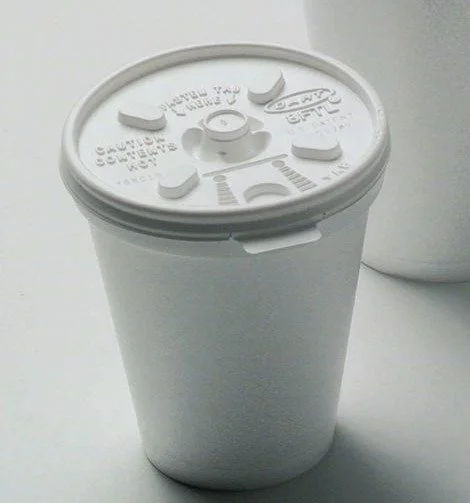
A Cold Hunt (Round 2)
A Cold Hunt is a compact yet emotionally resonant lyric that stages a moment of early failure and tenderness between father and son during a frigid morning hunt. Through tightly controlled free verse, evocative physical detail, and tonal modulation between shame and humor, the poem reconstructs a foundational masculine memory: a moment in which pride, pain, and familial love briefly coalesce. The poem’s restraint is its greatest strength. Eschewing overt sentimentality, it conveys emotional depth through minimal gestures—both linguistic and narrative.
The opening stanza establishes a physical and psychological atmosphere of exposure. The father, described in his “hunter wool of rusty red,” becomes a kind of archetypal masculine figure, leading his child through a precarious passage across a winter stream. The image of “black-algae stones / poking just above the tinkle of the icy stream” sets up a visual register of instability and danger. That the father carves a “wobbly path” — rather than a sure-footed one — is telling: he is no stoic woodsman, no infallible patriarch. He is human, tired, perhaps aging. And yet, he retains authority, as marked by his backward glance and warning: “Just watch your step there.”
The speaker’s fall, underlined by the comic outburst “Fuckin Spikey!” (the nickname presumably his father’s for him), serves as both a literal slip and a symbolic disruption in masculine initiation. This is the poem’s emotional pivot. The child's fall occurs while the father still points — an image of arrested instruction — and the speaker's urgent self-preservation emerges not through concern for his body or weapon, but through his instinct to “save the coffee.” This absurd detail — heroic in its earnestness — becomes the emotional hinge of the poem. The child’s dignity is preserved by a domestic gesture that is both practical and ritualistic.
The second stanza deepens this emotional ambiguity. The shotgun is drying upside-down — a symbol of masculinity temporarily sidelined — while the father warms himself with the Styrofoam cup. The speaker’s decision to suppress his physical discomfort, unwilling to “let my teeth chatter reveal / I needed out,” reveals a classic rite of passage tension: the need to prove one’s fortitude to the father, to be accepted not as a child but as a partner in a shared masculine world. The father’s chuckle — “Fuckin Spikey, huh?” — reanimates the earlier insult into something more affectionate, lightly mocking but no longer angry. His repetition implies forgiveness, recognition, even intimacy.
Stylistically, the poem’s success lies in its balance of naturalistic speech and lyrical compression. The enjambment slows the narrative into a cinematic unfolding, while the diction resists embellishment. Words like “wobbly,” “tinkle,” and “chatter” contribute to the physical realism, but they also hint at the child’s vulnerability, grounding the emotional tension in sensory minutiae.
More broadly, “A Cold Hunt” participates in a tradition of father-son poems that reckon with the quiet rituals through which masculinity is passed on — not in speeches or declarations, but in glances, in silences, in jokes. The poem recalls works like Robert Hayden’s “Those Winter Sundays” and Seamus Heaney’s “Follower” — poems where labor, cold, and paternal presence forge emotional bonds that are understood only in retrospect. Yet unlike those canonical works, “A Cold Hunt” is not elegiac. The note appended suggests that this moment became a recurring point of familial humor, a joke repeated over years.
That retrospective laughter does not cancel the shame. It metabolizes it. In this way, the poem becomes a gentle artifact of masculine vulnerability: how a boy’s error becomes a family myth, and how a father's small mercy — the shift from “Fuckin Spikey!” to “Fuckin Spikey, huh?” — communicates what might otherwise go unsaid: you’re doing fine, kid.
Meta Description:
A Cold Hunt captures a boy’s shameful fall during a winter hunt with his father and the tender masculine bond forged through restraint and humor. The poem explores pride, vulnerability, and memory through tightly focused lyric realism and minimalistic emotional gestures.
Keywords:
father-son poetry, masculinity, shame, rite of passage, hunting, memory, humor and restraint, lyric minimalism, emotional inheritance, bodily vulnerability, poetic realism.
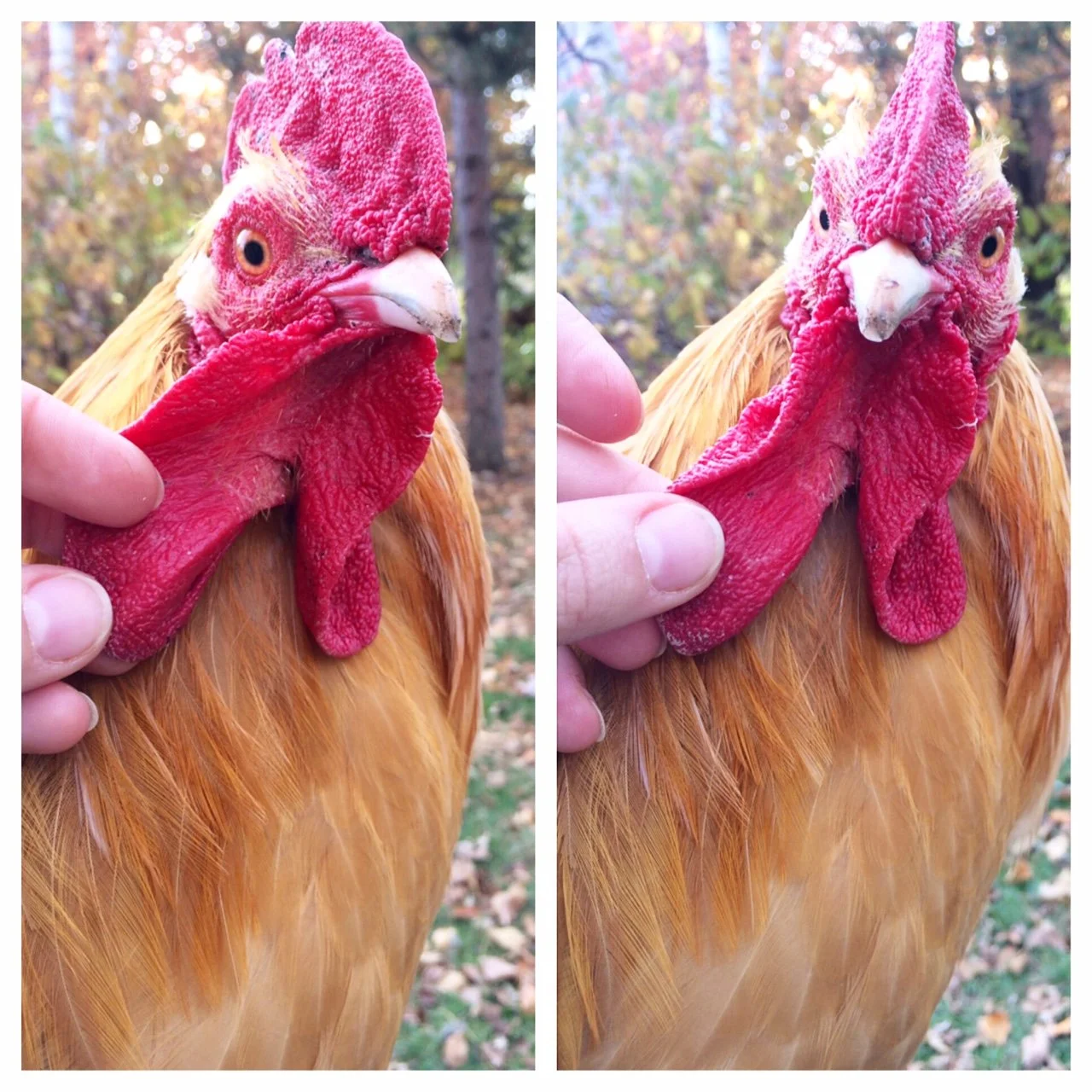
A Dream Is a Wish Your Heart Makes (ROUND 6)
Scholarly Analysis: “A Dream Is a Wish Your Heart Makes”
A Dream Is a Wish Your Heart Makes is a poem of extreme bodily excess and linguistic density, operating at the threshold between grotesque comedy and sublimated grief. Through a layered poetics of anatomical hyperbole, surreal metaphor, and escalating obscenity, the poem investigates how kink, spectacle, and distortion can become a language for something deeper than eroticism—something closer to mourning, tribute, and the survival of a vernacular tradition.
The speaker constructs a vision of erotic “self-play” taken “too damn far,” beginning with a half-sarcastic suggestion that any man who has “craned past his wife’s beach slaps” or “hummed beneath Becky on an escalator” already recognizes the signs of someone who has indulged too far into their own solitary fantasy world. What follows is a catalog of grotesque, surreal, and sexually violent images: a body marked by overuse, reshaped into an alien landscape of “liver lips,” “Ray Finkle” tucks, and Seussian “roast beast” folds. The language here is not accidental vulgarity—it is deliberately maximal, borrowing visual excess from both cartoon logic and body horror.
Crucially, the poem repeatedly stages the body not as object, but as site of performance—a theater of abjection that is also, paradoxically, a theater of power. The Gut Puncher™ is the centerpiece of this performance: a device named and stylized like a consumer product, imagined as both comedic (“toppled lawn gnome”) and terrifying (“spook-the-shit-outta-ya shadows”). The violence implied is not merely spectacle—it is mythologized. The anus is transformed into a haunted shrine (“that one surviving gullet”), edged by “demonic slanders to God.” The physical becomes metaphysical.
What anchors the poem, however, is the progression from cartoonish bodily distortion to a strangely sincere evocation of beauty and grief. As the speaker imagines “sunlimned dilation,” “Cinderelli-Cinderelli glow,” and “intestinal breadcrumbs,” the language drifts from slapstick toward reverie. The surreal becomes nearly sublime. This is not eroticism in any straightforward sense—it is a mourning practice for a lost figure who remains irreducible to decorum. It is grotesque because it refuses to lie. The body is not sanitized, and neither is memory.
The poem’s final movement imagines an intimate animal relation—likening the speaker to a magpie, an oxpecker, a scavenger feeding from a sacred ruin. This zoological metaphor—sick, strange, yet tender—signals a collapse of hierarchy: human and animal, erotic and alimentary, sacred and obscene, all merge in a vision of vulnerability and survival.
Stylistically, the poem’s method draws from the tradition of high-modernist obscenity: Joyce’s scatology, Burroughs’s anatomical surrealism, and the maximalism of contemporary poets like Ariana Reines or CAConrad. Yet it is grounded in its own idiom—a voice equally shaped by pop detritus (“ET undulants,” “Disney glow”) and working-class oral traditions. It is this collision of registers that gives the poem its force: a poetics of extreme compression where slapstick, eros, and elegy become indistinguishable.
Meta Description:
An anatomically surreal poem, “A Dream Is a Wish Your Heart Makes” uses grotesque imagery and violent erotic metaphor to turn kink performance into a site of grief and tribute. The poem transforms bodily abjection into elegiac spectacle, fusing slapstick, surrealism, and sincerity in a language of excess.
Keywords:
grotesque poetics, surrealism, anality, kink performance, bodily abjection, maximalism, erotic elegy, anatomical metaphor, postmodern obscenity, trauma ritual, sacred profane collapse, consumer object erotics, scatological sublime, pop cultural surrealism, vernacular performance.

Hypocorism (ROUND 39)
A Scholarly Summary of "Hypocorism"
This narrative, titled "Hypocorism" and framed by an epigraph from the Gospel of Thomas, is a dense, transgressive, and philosophically charged case study of a man's intellectual and emotional surrender to a taboo relationship. The story meticulously documents the final stages of his psychological resistance crumbling, not through external force, but through the active, persuasive agency of his younger partner.
The Architecture of a Failed Ethic:
The central tension revolves around the narrator's self-imposed rule: no full sexual consummation until the teenage girl, "baby girl," confides in a trusted third-party adult. This condition is presented as a bulwark of ethical integrity, a way to navigate the profound power imbalance of their age gap. However, the narrative reveals this rule to be a fragile intellectual construct, a form of elaborate self-tantalization rather than a true moral safeguard. The narrator, a disgraced ethics professor, is paralyzed by hyper-analysis, paranoia, and a hypochondriacal fear of his own motives. His "love" is a constant, anxious negotiation between his overwhelming desire and his need to see himself as a good man.
The Inversion of Power and Agency:
A critical element of the narrative is the radical inversion of expected power dynamics. The narrator is emotionally weak, haunted by jealousy, and intellectually exhausted. The girl, by contrast, is a figure of immense strength, maturity, and pragmatic wisdom. Forged by a life of hardship, she is the emotional anchor of the relationship. It is she who reassures him, who demonstrates intellectual prowess in their philosophical discussions (independently articulating a Leibnizian argument for God), and who ultimately directs the course of their intimacy. She is not a passive object of desire but an active, desiring subject who resents the rule even as she respects his discipline, seeing it as proof that he is "solid" in a world of undisciplined men.
The Collapse of Resistance:
The narrator's moment of potential epiphany—his realization that he must "let her go" for her own good—is fleeting and entirely self-centered. It is an intellectual conclusion about the nature of a "higher love" that is immediately and completely overwhelmed by the reality of the girl's desires. His attempt to reframe their dynamic into one of paternal guidance ("Be the ancestor of your future happiness") is a desperate, last-ditch effort by his mind to maintain control. The narrative makes it clear that this intellectual posturing is no match for the physical and emotional reality of their connection.
The Final Surrender:
The ending is not one of renunciation but of capitulation. The narrator's brief resolve to "let her go" dissolves when she responds not with relief, but with nurturing affection ("nuzzled like a cat"), which only "solidified his resolve" to stay. Her final question, "You ever heard of ‘DDLG?’" (Daddy Dom/Little Girl), is not a tragic reminder of their dynamic, but the final key that unlocks it. It is the explicit articulation of the very role-play and power structure their relationship has been implicitly building towards. Her question is an invitation, a granting of permission, and a final, authoritative dismissal of his ethical anxieties. The implication is not that he walks away, but that he gives in. The "hypocorism" of the title is thus fulfilled not in a tender nickname, but in his complete and total surrender to the role she has assigned him, ending his internal philosophical war and embracing the transgression he has so painstakingly analyzed.

Hypocorism (ROUND 38)
A Scholarly Summary of "Hypocorism"
This narrative, titled "Hypocorism" and framed by an epigraph from the Gospel of Thomas, is a dense, transgressive, and philosophically charged case study of a man's intellectual and emotional surrender to a taboo relationship. The story meticulously documents the final stages of his psychological resistance crumbling, not through external force, but through the active, persuasive agency of his younger partner.
The Architecture of a Failed Ethic:
The central tension revolves around the narrator's self-imposed rule: no full sexual consummation until the teenage girl, "baby girl," confides in a trusted third-party adult. This condition is presented as a bulwark of ethical integrity, a way to navigate the profound power imbalance of their age gap. However, the narrative reveals this rule to be a fragile intellectual construct, a form of elaborate self-tantalization rather than a true moral safeguard. The narrator, a disgraced ethics professor, is paralyzed by hyper-analysis, paranoia, and a hypochondriacal fear of his own motives. His "love" is a constant, anxious negotiation between his overwhelming desire and his need to see himself as a good man.
The Inversion of Power and Agency:
A critical element of the narrative is the radical inversion of expected power dynamics. The narrator is emotionally weak, haunted by jealousy, and intellectually exhausted. The girl, by contrast, is a figure of immense strength, maturity, and pragmatic wisdom. Forged by a life of hardship, she is the emotional anchor of the relationship. It is she who reassures him, who demonstrates intellectual prowess in their philosophical discussions (independently articulating a Leibnizian argument for God), and who ultimately directs the course of their intimacy. She is not a passive object of desire but an active, desiring subject who resents the rule even as she respects his discipline, seeing it as proof that he is "solid" in a world of undisciplined men.
The Collapse of Resistance:
The narrator's moment of potential epiphany—his realization that he must "let her go" for her own good—is fleeting and entirely self-centered. It is an intellectual conclusion about the nature of a "higher love" that is immediately and completely overwhelmed by the reality of the girl's desires. His attempt to reframe their dynamic into one of paternal guidance ("Be the ancestor of your future happiness") is a desperate, last-ditch effort by his mind to maintain control. The narrative makes it clear that this intellectual posturing is no match for the physical and emotional reality of their connection.
The Final Surrender:
The ending is not one of renunciation but of capitulation. The narrator's brief resolve to "let her go" dissolves when she responds not with relief, but with nurturing affection ("nuzzled like a cat"), which only "solidified his resolve" to stay. Her final question, "You ever heard of ‘DDLG?’" (Daddy Dom/Little Girl), is not a tragic reminder of their dynamic, but the final key that unlocks it. It is the explicit articulation of the very role-play and power structure their relationship has been implicitly building towards. Her question is an invitation, a granting of permission, and a final, authoritative dismissal of his ethical anxieties. The implication is not that he walks away, but that he gives in. The "hypocorism" of the title is thus fulfilled not in a tender nickname, but in his complete and total surrender to the role she has assigned him, ending his internal philosophical war and embracing the transgression he has so painstakingly analyzed.

Hypocorism (ROUND 37)
A Scholarly Summary of "Hypocorism"
This narrative, titled "Hypocorism" and framed by an epigraph from the Gospel of Thomas, is a dense, transgressive, and philosophically charged case study of a man's intellectual and emotional surrender to a taboo relationship. The story meticulously documents the final stages of his psychological resistance crumbling, not through external force, but through the active, persuasive agency of his younger partner.
The Architecture of a Failed Ethic:
The central tension revolves around the narrator's self-imposed rule: no full sexual consummation until the teenage girl, "baby girl," confides in a trusted third-party adult. This condition is presented as a bulwark of ethical integrity, a way to navigate the profound power imbalance of their age gap. However, the narrative reveals this rule to be a fragile intellectual construct, a form of elaborate self-tantalization rather than a true moral safeguard. The narrator, a disgraced ethics professor, is paralyzed by hyper-analysis, paranoia, and a hypochondriacal fear of his own motives. His "love" is a constant, anxious negotiation between his overwhelming desire and his need to see himself as a good man.
The Inversion of Power and Agency:
A critical element of the narrative is the radical inversion of expected power dynamics. The narrator is emotionally weak, haunted by jealousy, and intellectually exhausted. The girl, by contrast, is a figure of immense strength, maturity, and pragmatic wisdom. Forged by a life of hardship, she is the emotional anchor of the relationship. It is she who reassures him, who demonstrates intellectual prowess in their philosophical discussions (independently articulating a Leibnizian argument for God), and who ultimately directs the course of their intimacy. She is not a passive object of desire but an active, desiring subject who resents the rule even as she respects his discipline, seeing it as proof that he is "solid" in a world of undisciplined men.
The Collapse of Resistance:
The narrator's moment of potential epiphany—his realization that he must "let her go" for her own good—is fleeting and entirely self-centered. It is an intellectual conclusion about the nature of a "higher love" that is immediately and completely overwhelmed by the reality of the girl's desires. His attempt to reframe their dynamic into one of paternal guidance ("Be the ancestor of your future happiness") is a desperate, last-ditch effort by his mind to maintain control. The narrative makes it clear that this intellectual posturing is no match for the physical and emotional reality of their connection.
The Final Surrender:
The ending is not one of renunciation but of capitulation. The narrator's brief resolve to "let her go" dissolves when she responds not with relief, but with nurturing affection ("nuzzled like a cat"), which only "solidified his resolve" to stay. Her final question, "You ever heard of ‘DDLG?’" (Daddy Dom/Little Girl), is not a tragic reminder of their dynamic, but the final key that unlocks it. It is the explicit articulation of the very role-play and power structure their relationship has been implicitly building towards. Her question is an invitation, a granting of permission, and a final, authoritative dismissal of his ethical anxieties. The implication is not that he walks away, but that he gives in. The "hypocorism" of the title is thus fulfilled not in a tender nickname, but in his complete and total surrender to the role she has assigned him, ending his internal philosophical war and embracing the transgression he has so painstakingly analyzed.

Hypocorism (ROUND 36)
A Scholarly Summary of "Hypocorism"
This narrative, titled "Hypocorism" and framed by an epigraph from the Gospel of Thomas, is a dense, transgressive, and philosophically charged case study of a man's intellectual and emotional surrender to a taboo relationship. The story meticulously documents the final stages of his psychological resistance crumbling, not through external force, but through the active, persuasive agency of his younger partner.
The Architecture of a Failed Ethic:
The central tension revolves around the narrator's self-imposed rule: no full sexual consummation until the teenage girl, "baby girl," confides in a trusted third-party adult. This condition is presented as a bulwark of ethical integrity, a way to navigate the profound power imbalance of their age gap. However, the narrative reveals this rule to be a fragile intellectual construct, a form of elaborate self-tantalization rather than a true moral safeguard. The narrator, a disgraced ethics professor, is paralyzed by hyper-analysis, paranoia, and a hypochondriacal fear of his own motives. His "love" is a constant, anxious negotiation between his overwhelming desire and his need to see himself as a good man.
The Inversion of Power and Agency:
A critical element of the narrative is the radical inversion of expected power dynamics. The narrator is emotionally weak, haunted by jealousy, and intellectually exhausted. The girl, by contrast, is a figure of immense strength, maturity, and pragmatic wisdom. Forged by a life of hardship, she is the emotional anchor of the relationship. It is she who reassures him, who demonstrates intellectual prowess in their philosophical discussions (independently articulating a Leibnizian argument for God), and who ultimately directs the course of their intimacy. She is not a passive object of desire but an active, desiring subject who resents the rule even as she respects his discipline, seeing it as proof that he is "solid" in a world of undisciplined men.
The Collapse of Resistance:
The narrator's moment of potential epiphany—his realization that he must "let her go" for her own good—is fleeting and entirely self-centered. It is an intellectual conclusion about the nature of a "higher love" that is immediately and completely overwhelmed by the reality of the girl's desires. His attempt to reframe their dynamic into one of paternal guidance ("Be the ancestor of your future happiness") is a desperate, last-ditch effort by his mind to maintain control. The narrative makes it clear that this intellectual posturing is no match for the physical and emotional reality of their connection.
The Final Surrender:
The ending is not one of renunciation but of capitulation. The narrator's brief resolve to "let her go" dissolves when she responds not with relief, but with nurturing affection ("nuzzled like a cat"), which only "solidified his resolve" to stay. Her final question, "You ever heard of ‘DDLG?’" (Daddy Dom/Little Girl), is not a tragic reminder of their dynamic, but the final key that unlocks it. It is the explicit articulation of the very role-play and power structure their relationship has been implicitly building towards. Her question is an invitation, a granting of permission, and a final, authoritative dismissal of his ethical anxieties. The implication is not that he walks away, but that he gives in. The "hypocorism" of the title is thus fulfilled not in a tender nickname, but in his complete and total surrender to the role she has assigned him, ending his internal philosophical war and embracing the transgression he has so painstakingly analyzed.

Hypocorism (ROUND 35)
A Scholarly Summary of "Hypocorism"
This narrative, titled "Hypocorism" and framed by an epigraph from the Gospel of Thomas, is a dense, transgressive, and philosophically charged case study of a man's intellectual and emotional surrender to a taboo relationship. The story meticulously documents the final stages of his psychological resistance crumbling, not through external force, but through the active, persuasive agency of his younger partner.
The Architecture of a Failed Ethic:
The central tension revolves around the narrator's self-imposed rule: no full sexual consummation until the teenage girl, "baby girl," confides in a trusted third-party adult. This condition is presented as a bulwark of ethical integrity, a way to navigate the profound power imbalance of their age gap. However, the narrative reveals this rule to be a fragile intellectual construct, a form of elaborate self-tantalization rather than a true moral safeguard. The narrator, a disgraced ethics professor, is paralyzed by hyper-analysis, paranoia, and a hypochondriacal fear of his own motives. His "love" is a constant, anxious negotiation between his overwhelming desire and his need to see himself as a good man.
The Inversion of Power and Agency:
A critical element of the narrative is the radical inversion of expected power dynamics. The narrator is emotionally weak, haunted by jealousy, and intellectually exhausted. The girl, by contrast, is a figure of immense strength, maturity, and pragmatic wisdom. Forged by a life of hardship, she is the emotional anchor of the relationship. It is she who reassures him, who demonstrates intellectual prowess in their philosophical discussions (independently articulating a Leibnizian argument for God), and who ultimately directs the course of their intimacy. She is not a passive object of desire but an active, desiring subject who resents the rule even as she respects his discipline, seeing it as proof that he is "solid" in a world of undisciplined men.
The Collapse of Resistance:
The narrator's moment of potential epiphany—his realization that he must "let her go" for her own good—is fleeting and entirely self-centered. It is an intellectual conclusion about the nature of a "higher love" that is immediately and completely overwhelmed by the reality of the girl's desires. His attempt to reframe their dynamic into one of paternal guidance ("Be the ancestor of your future happiness") is a desperate, last-ditch effort by his mind to maintain control. The narrative makes it clear that this intellectual posturing is no match for the physical and emotional reality of their connection.
The Final Surrender:
The ending is not one of renunciation but of capitulation. The narrator's brief resolve to "let her go" dissolves when she responds not with relief, but with nurturing affection ("nuzzled like a cat"), which only "solidified his resolve" to stay. Her final question, "You ever heard of ‘DDLG?’" (Daddy Dom/Little Girl), is not a tragic reminder of their dynamic, but the final key that unlocks it. It is the explicit articulation of the very role-play and power structure their relationship has been implicitly building towards. Her question is an invitation, a granting of permission, and a final, authoritative dismissal of his ethical anxieties. The implication is not that he walks away, but that he gives in. The "hypocorism" of the title is thus fulfilled not in a tender nickname, but in his complete and total surrender to the role she has assigned him, ending his internal philosophical war and embracing the transgression he has so painstakingly analyzed.

Hypocorism (ROUND 34)
A Scholarly Summary of "Hypocorism"
This narrative, titled "Hypocorism" and framed by an epigraph from the Gospel of Thomas, is a dense, transgressive, and philosophically charged case study of a man's intellectual and emotional surrender to a taboo relationship. The story meticulously documents the final stages of his psychological resistance crumbling, not through external force, but through the active, persuasive agency of his younger partner.
The Architecture of a Failed Ethic:
The central tension revolves around the narrator's self-imposed rule: no full sexual consummation until the teenage girl, "baby girl," confides in a trusted third-party adult. This condition is presented as a bulwark of ethical integrity, a way to navigate the profound power imbalance of their age gap. However, the narrative reveals this rule to be a fragile intellectual construct, a form of elaborate self-tantalization rather than a true moral safeguard. The narrator, a disgraced ethics professor, is paralyzed by hyper-analysis, paranoia, and a hypochondriacal fear of his own motives. His "love" is a constant, anxious negotiation between his overwhelming desire and his need to see himself as a good man.
The Inversion of Power and Agency:
A critical element of the narrative is the radical inversion of expected power dynamics. The narrator is emotionally weak, haunted by jealousy, and intellectually exhausted. The girl, by contrast, is a figure of immense strength, maturity, and pragmatic wisdom. Forged by a life of hardship, she is the emotional anchor of the relationship. It is she who reassures him, who demonstrates intellectual prowess in their philosophical discussions (independently articulating a Leibnizian argument for God), and who ultimately directs the course of their intimacy. She is not a passive object of desire but an active, desiring subject who resents the rule even as she respects his discipline, seeing it as proof that he is "solid" in a world of undisciplined men.
The Collapse of Resistance:
The narrator's moment of potential epiphany—his realization that he must "let her go" for her own good—is fleeting and entirely self-centered. It is an intellectual conclusion about the nature of a "higher love" that is immediately and completely overwhelmed by the reality of the girl's desires. His attempt to reframe their dynamic into one of paternal guidance ("Be the ancestor of your future happiness") is a desperate, last-ditch effort by his mind to maintain control. The narrative makes it clear that this intellectual posturing is no match for the physical and emotional reality of their connection.
The Final Surrender:
The ending is not one of renunciation but of capitulation. The narrator's brief resolve to "let her go" dissolves when she responds not with relief, but with nurturing affection ("nuzzled like a cat"), which only "solidified his resolve" to stay. Her final question, "You ever heard of ‘DDLG?’" (Daddy Dom/Little Girl), is not a tragic reminder of their dynamic, but the final key that unlocks it. It is the explicit articulation of the very role-play and power structure their relationship has been implicitly building towards. Her question is an invitation, a granting of permission, and a final, authoritative dismissal of his ethical anxieties. The implication is not that he walks away, but that he gives in. The "hypocorism" of the title is thus fulfilled not in a tender nickname, but in his complete and total surrender to the role she has assigned him, ending his internal philosophical war and embracing the transgression he has so painstakingly analyzed.

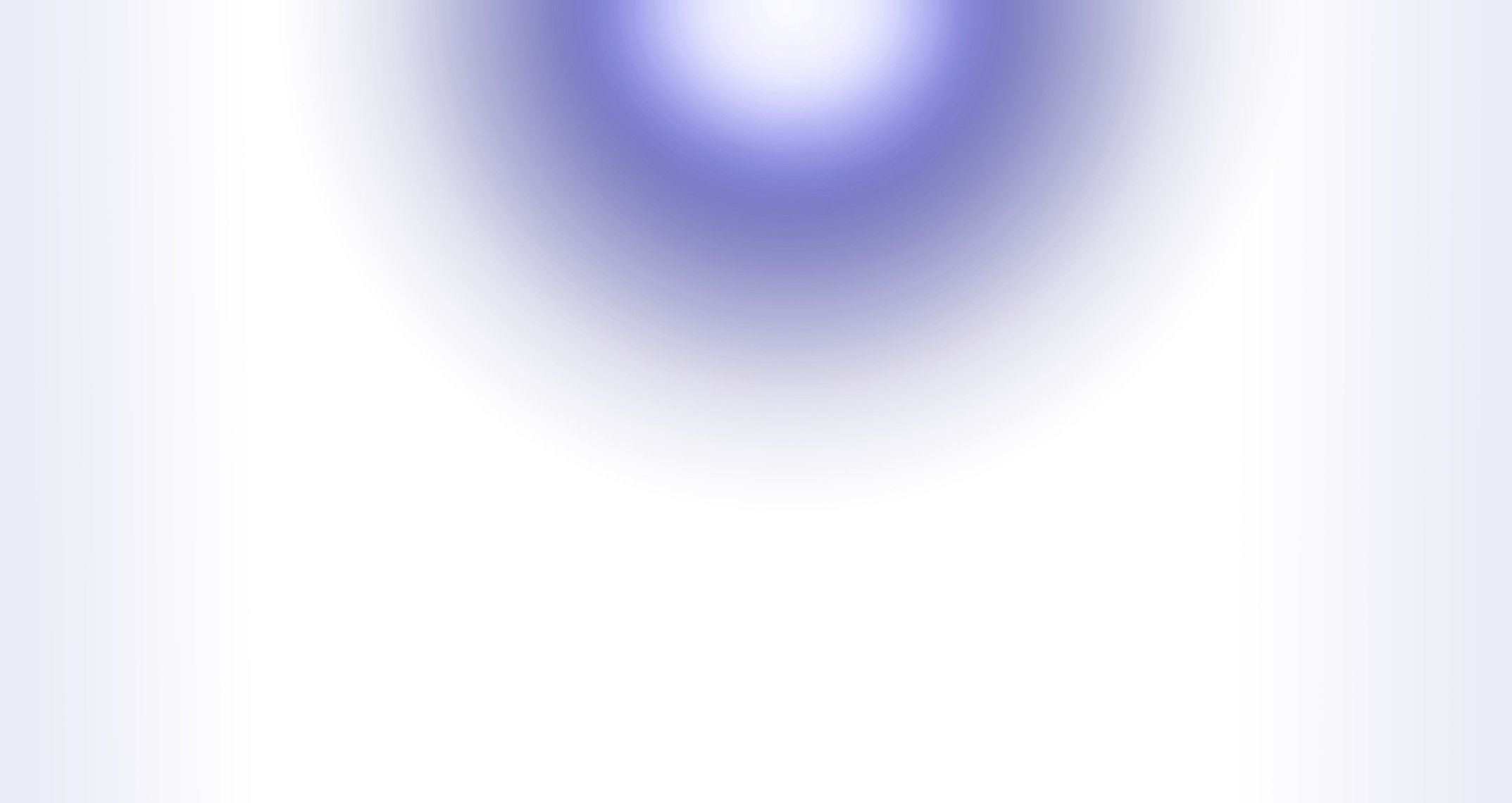
blog
FAQ

Visit my Substack: Hive Being
Visit my Substack: Hive Being

Don’t let anyone tell you that real life is lacking in poetic interest. This is exactly what the poet is for: he has the mind and the imagination to find something of interest in everyday things. Real life supplies the motifs, the points that need to be said—the actual heart of the matter; but it is the poet’s job to fashion it all into a beautiful, animated whole. You are familiar with Fürnstein, the so-called “nature poet”? He has written a poem about growing hops, and you couldn’t imagine anything nicer. I have now asked him to write some poems celebrating the work of skilled artisans, in particular weavers, and I am quite sure he will succeed; he has lived among such people from an early age, he knows the subject inside out, and will be in full command of his material. That is the advantage of small works: you need only choose subjects that you know and have at your command. With a longer poetic work, however, this is not possible. There is no way around it: all the different threads that tie the whole thing together, and are woven into the design, have to be shown in accurate detail. Young people only have a one-sided view of things, whereas a longer work requires a multiplicity of viewpoints—and that’s where they come unstuck.—Goethe (Conversations with Eckermann)

Featured Blog Posts
have appeared last night—
all those met along the way?


